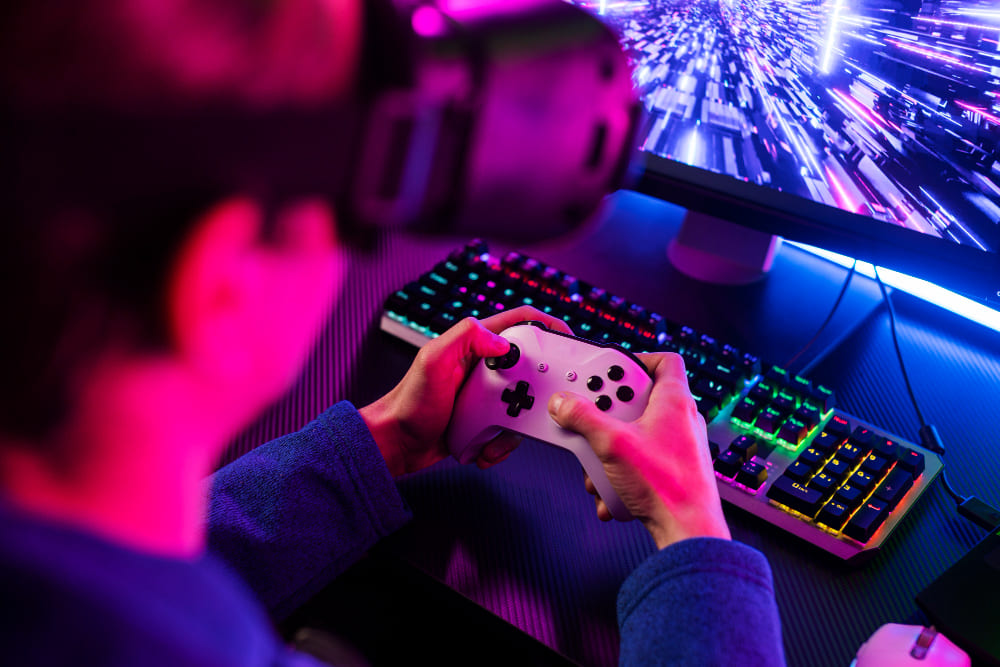Playing card games online has opened up a world of strategic thinking and decision-making skills beyond the digital table. These games are not just about luck; they require careful planning, observation, and adaptability. Each digital arena provides a sophisticated view into competitive environments where strategy reigns supreme. As players, every move we make reflects our tactical prowess and understanding of the game. The games mimic varied life scenarios, prompting one to think several steps ahead, anticipate challenges, and craft solutions. If you’re curious about the strategic depths offered by online card games, you can learn more about popular ones like Hearts, which challenge players to tune their decision-making processes finely.
Engaging with these games online has taught me that strategy is about planning while being agile enough to adapt to unforeseen changes. The virtual realm of card gaming provides a constant source of mental exercise and insight into the player’s psychology and the competition. The nuanced approaches adopted in these games echo broader applications—a testimony to essential life skills like problem-solving, resilience, and critical thinking.
Enhancing Strategic Thinking through Online Card Games
Online card games hone strategic thinking by pushing players to think several steps ahead. Each game is a complex battlefield where understanding dynamics and predicting outcomes matter as much as the cards you hold. The growing suite of digital card games allows players to explore intricate strategy layers often unseen in more straightforward games. These platforms mess the boundaries between gaming as a form of leisure and intellectual challenge, guiding players through acute decision-making processes underlined by tactical consideration.
The gameplay offers insights into tactical approaches and the importance of foresight and adaptability. As players meet the challenges presented by evolving gameplay, they learn to anticipate future outcomes and craft strategies that allow flexibility in execution. You learn to read your opponents’ virtual behaviors, pick up on patterns, and adjust strategies accordingly, skills that translate well into real-life situations requiring nuanced thought and strategic planning. Mastery over these games refines your analytical abilities and builds a robust framework for critical assessment and adaptive problem-solving in all aspects of life.
The Psychological Benefits of Online Card Games
These games are great for sharpening the mind and contribute significantly to mental health. They can reduce stress by providing an engaging and emotionally rewarding way to focus the mind away from life’s pressures. Card games can foster a sense of achievement and boost confidence as you develop and refine your strategies. Fueled by in-game successes, this confidence permeates other facets of life where tackling challenges head-on becomes second nature. The mental agility required to play effectively staves off fatigue, reinforcing neuronal pathways and holistically strengthening cognitive resonance.
Moreover, focusing on these games allows players to enter a state of ‘flow,’ a psychological phenomenon where one is fully immersed in an activity with energized focus and enjoyment. This state provides relaxation and enhances performance, creativity, and the ability to remain attentive during complex scenarios. The challenges posed by card games encourage players to overcome hurdles, which translates into a greater ability to handle stress-prone situations in everyday life.
How Card Games Enhance Cognitive Skills
Playing online card games challenges players to enhance cognitive skills, including memory, concentration, and analytical thinking. Players regularly engage their brains in pattern recognition, strategic planning, and quick decision-making. As participants navigate through their virtual decks, they must prioritize tasks, anticipate future moves, and manage finite resources. These practices cultivate a quick-thinking environment, teaching efficiency and adaptability—the sort that spills into professional and personal life, aiding in managing multiple tasks and dynamic environments.
These games invariably demand cognitive multitasking that sharpens the mind, as players simultaneously manage current gameplay and anticipate future scenarios. This constant mental exercise builds neural connections and is crucial for developing a flexible mindset, which can be advantageous as the complexity of life situations increases. Playing card games can provoke significant neuroplasticity, enhancing both short-term decision-making capabilities and long-term strategic planning competencies.
Exploring Social Dynamics in the Online Gaming Space
Online card games provide a platform for social interaction and community building. Players around the globe connect in virtual spaces, engaging in shared experiences that strengthen global friendships and improve communication skills. For many, these games bridge different cultures and perspectives, nurturing empathy and cultural appreciation.
These games simulate real-life social interactions, teaching important social cues and negotiation skills. Engaging in multiplayer sessions can lead to improved teamwork and communication, fostering a sense of camaraderie, empathy, and mutual understanding. These interactions are pivotal for enhancing interpersonal skills—skills critical in professional environments where teamwork and clear, concise communication are valued. The shared experiences and collaborative nature of online card games foster bonds that transcend geographical barriers, uniting individuals through shared objectives and challenges.
The Impact of Technology on Card Gaming Strategy
Technology has redefined traditional card gaming, introducing innovative platforms that create universal access and promote diverse player interactions. Online games allow enthusiasts to face off with players worldwide, sharing tactics and engaging in strategically diverse encounters. These platforms utilize algorithms and data analytics to enhance user engagement, providing insight into player behavior and preferences. This technological integration ensures that strategic challenges remain fresh, challenging players continuously to refine and adapt their strategies against multifaceted and unpredictable human element pathways.
This digital fusion allows continuous interaction with strategic gameplay, maintaining player interest through dynamic experiences and evolving game features. The deeply interactive nature of online games appeals to traditional gamers and new adopters unfamiliar with card games. This intersection of technology and strategy nurtures a culture of continuous learning, adaptability, and innovation, essential skills in the fast-paced, ever-evolving digital age.
Educational Insights Gained from Online Card Games
The strategy elements inherent in card games readily align with educational objectives, serving as a practical and accessible tool for learning. Participants develop resource management, probability analysis, and critical thinking through immersive simulated play—skills essential across academic disciplines and professional environments.
Educators can incorporate these games into curriculums offering students a dynamic way to engage with and internalize complex mathematical concepts or strategic economic theories. The conceptual mechanisms employed within card games make learning accessible, particularly through hands-on activities that break the monotony of conventional rote methodologies. Card games encourage synthesizing learned information by allowing learners to apply theoretical knowledge to practical scenarios, leading to deeper comprehension and scholastic success.
Conclusion
Playing card games online offers rich experiences beyond the pursuit of amusement. They unlock potentials within strategic development and cognitive enhancement arenas. They challenge players to think strategically, enhance cognitive skills, and develop an appreciation for varying perspectives—a blend that proves invaluable in personal growth and self-improvement.
From improving mental agility and fostering meaningful social interactions to offering endless strategic challenges, these games remain essential for skill development. Engaging with them in the digital space provides profound insights and skills with applications across life’s landscapes. With every hand played and every choice made, online card gaming emphasizes the journey rather than the destination, encouraging personal growth and societal connectivity.




